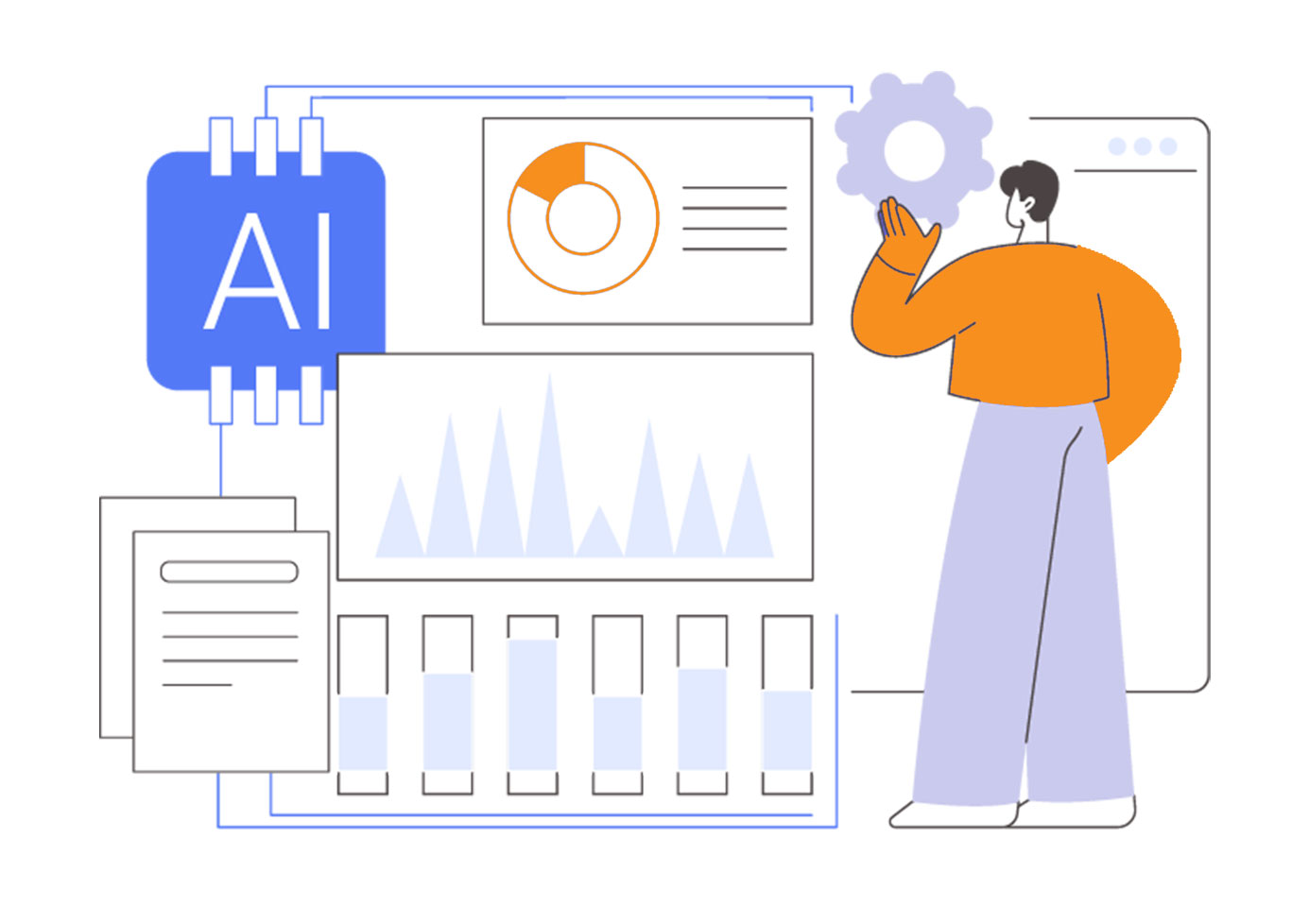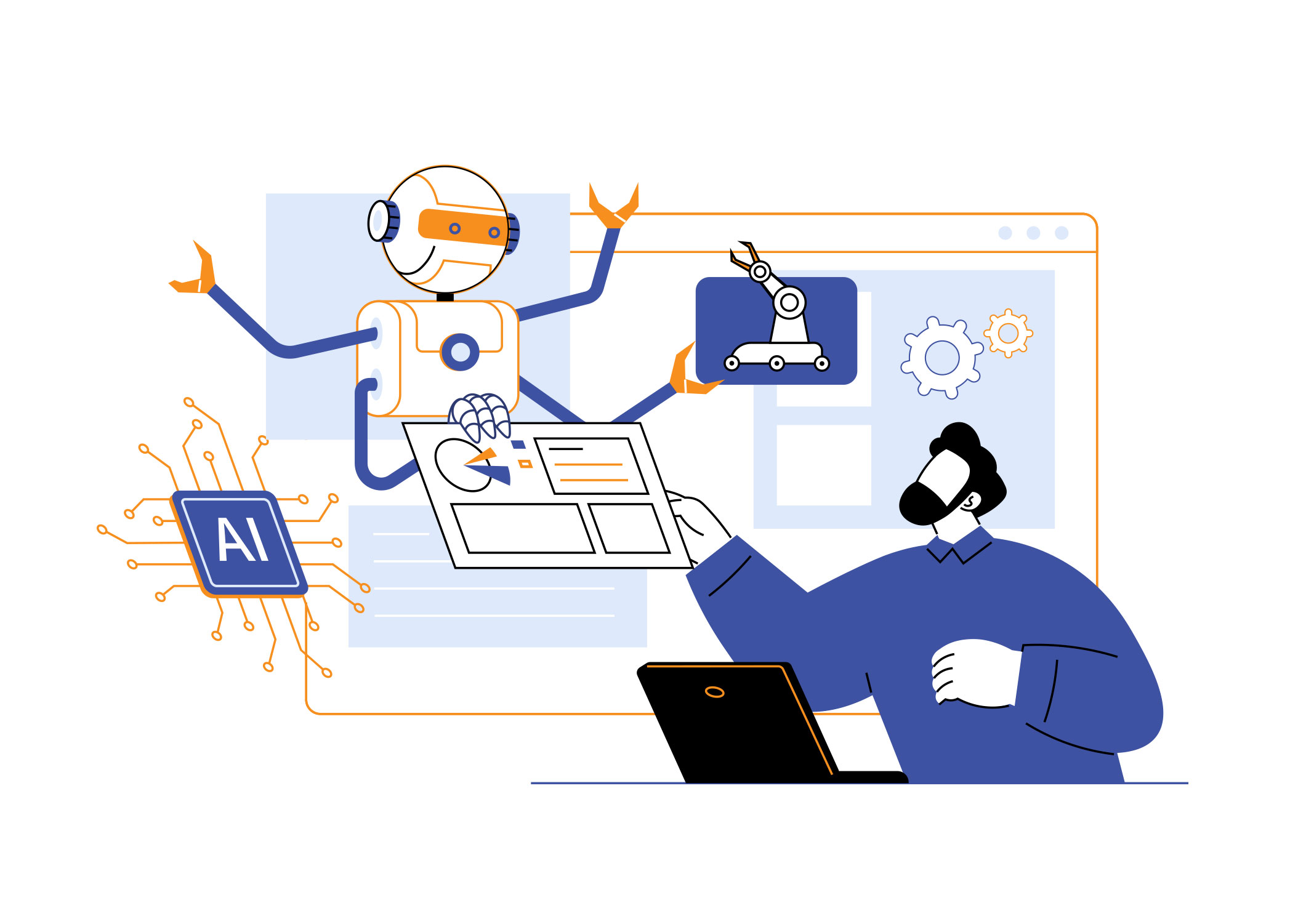From streamlining routine tasks to enabling complex decision-making the integration of automation technologies and artificial intelligence (AI) is reshaping industries across the globe. As these technologies increasingly permeate various sectors, they promise to reshape the landscape of work by enhancing decision-making, personalizing customer interactions, and handling complex tasks with unprecedented precision. AI agents emerge as the pinnacle of this evolution with capabilities like predictive analytics and continuous learning, empowering businesses to tailor customer experiences, and scale operations seamlessly. In this article, we delve into the intricacies of process automation, IA, and AI agents, exploring their applications across industries and their transformative impact on business operations. From financial services to healthcare, these technologies are revolutionizing how organizations operate, paving the way for a future where human-machine collaboration drives innovation and success.
Process automation encompasses the application of various technologies to streamline and optimize routine business processes and operations. It plays a critical role in industries like manufacturing, healthcare, and finance by significantly enhancing efficiency, accuracy, and consistency. This technological adoption enables organizations to automate tasks that are repetitive and time-consuming, thereby reducing the reliance on human intervention.
As a result, errors are minimized, and employees can redirect their focus towards more strategic, value-added activities. Process automation offers several benefits for organizations:
Intelligent Automation (IA) represents an advanced evolution in the field of automation by incorporating artificial intelligence technologies, such as machine learning and natural language processing, into traditional process automation frameworks. This integration significantly enhances the capability of automated systems to perform complex tasks that require cognitive skills such as judgment and decision-making. By utilizing IA, systems can analyze vast amounts of data, adapt to new information, and make informed decisions based on learned patterns and contexts.
Few Use Cases
Intelligent Automation is pushing the boundaries of what automated systems can achieve, moving beyond simple task automation to areas requiring deeper analytical and decision-making abilities. This not only increases efficiency but also enhances the quality of services and decision-making in businesses adopting these advanced technologies.
AI agents are designed to mimic human cognitive functions such as learning, reasoning, and problem-solving, making them invaluable in scenarios that require complex decision-making. Unlike these tools that handle repetitive tasks, AI agents can analyze large datasets, continually learn from the data, and make sophisticated, informed decisions. This allows them to operate in scenarios demanding complex decision-making, rendering them invaluable across various sectors.
Some Advantages of AI Agents
Aaron Levie, CEO of Box, draws a compelling parallel between the rise of SaaS and the burgeoning potential of AI agents. Much like SaaS made advanced technologies accessible beyond large corporations to smaller businesses and teams, AI agents are poised to open up specialized skills and complex decision-making processes to a much wider audience. This shift has the potential to dramatically expand the market by making these advanced services accessible through straightforward online interfaces or simple API calls. Such democratization could lower barriers to strategic resources significantly, leading to a surge in productivity and innovation reminiscent of the early impacts of SaaS.
Each of these technologies serves distinct business needs, optimized for different types of tasks within an organization:
The integration of AI and automation is poised to deepen, pointing towards an increasingly automated and intelligent global business landscape. The future will likely see enhancements driven by predictive analytics, AI-driven decision-making, and advancements in robotic processes, catalyzing the next wave of business innovation.
Trends to Watch:
These advancements underscore a transformative period in automation and AI, where the boundaries of technology continuously expand to include more sophisticated, efficient, and adaptive business processes. This ongoing evolution promises not only enhanced operational capabilities but also significant competitive advantages for businesses that adapt swiftly to these emerging technologies.
AI agents and automation technologies are not merely tools; they are transformative forces that bridge the gap between human ingenuity and machine efficiency. As these technologies are increasingly integrated into business operations, they unlock new levels of productivity and innovation, enabling smarter decisions and more personalized customer experiences. This integration reshapes the future of work, pushing the boundaries of what businesses can achieve in a digital landscape. In the future, AI and automation will not only automate tasks but also enhance strategic thinking and decision-making. This shift will expand the role of AI in daily operations and strategic planning, fostering a new ecosystem where human and machine collaboration is the norm. By freeing human workers from routine tasks, these technologies allow for engagement in more complex and meaningful roles, enriching work life and catalyzing innovation. Businesses that embrace this transformation will thrive, driving forward a more dynamic, responsive, and thriving global economy.

OpenAI Introduces GPT-4o OpenAI has introduced GPT-4o, the latest iteration in its series of generative pretrained transformers. GPT-4o, where ‘o’…

Artificial Intelligence (AI) is transforming industries across the globe. Businesses are increasingly recognizing the potential of AI to streamline operations,…

Introduction to AI Agents and Agentic Workflows Artificial intelligence (AI) agents are software entities that can perform tasks on behalf…